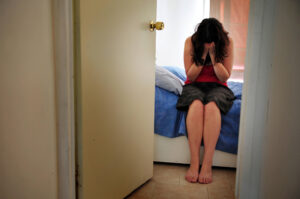Custody arrangement and parenting time agreement allow the child to be integrated into both households following a divorce.
 New Jersey law is set up to protect the state’s citizens in all of their life experiences. Judicial law is especially protective of children’s best interests, holding them as the central factor in determining child custody in the case of divorce; additionally, New Jersey law is conscientiously written to protect New Jersey citizens from domestic violence. Recently, these two legal areas – children’s rights in a divorce and domestic violence protections – overlapped in a New Jersey Appellate case, giving rise to a new precedent in domestic violence law.
New Jersey law is set up to protect the state’s citizens in all of their life experiences. Judicial law is especially protective of children’s best interests, holding them as the central factor in determining child custody in the case of divorce; additionally, New Jersey law is conscientiously written to protect New Jersey citizens from domestic violence. Recently, these two legal areas – children’s rights in a divorce and domestic violence protections – overlapped in a New Jersey Appellate case, giving rise to a new precedent in domestic violence law.
Children are highly impressionable, and their parents’ divorce has the potential to upend important consistency in their physical and emotional life. Because of this fragility in a child’s socioemotional development, New Jersey child custody law is set up to provide the children of divorce as much access to both parents following the divorce as is safe and in the child’s best interest. This often means that the custody arrangement and parenting time agreement allows the child to be integrated into both households following a divorce.
Custody Arrangements and Shared Households
According to New Jersey law, custody is either physical or legal. Physical custody refers to where the child lives, and often, this includes integration into two households. Legal custody refers to the rights that one or both parents have to decide regarding the child, such as medical, educational, and religious decisions.
The custody arrangements divorcing New Jersey couples with children decide among are the following:
Sole Legal and Physical Custody
As this sounds, in this arrangement, one parent has nearly all, if not all, rights to decision-making and time with the children. If the other parent is granted visitation rights, they are often supervised. In this case, children are members of only one household, that of the custodial parent. This arrangement is often sought by a parent who fears for the child’s best interests because of the other parent’s history, including drug use, domestic violence, or repeated legal issues.
Joint Physical and Legal Custody

Joint Legal Custody
While joint legal custody is not as evenly spread as an arrangement as joint physical and legal custody, both parents do have a say in the children’s medical, educational, and religious upbringing. In this arrangement, the children live with one parent, the ‘custodial’ parent; and they spend time with the other parent according to the developed parenting time agreement. In this scenario, children are often integrated into two households, though their integration into the non-custodial parent household is less prevalent.
Households As It Relates To Domestic Violence
According to the New Jersey Prevention of Domestic Violence Act, domestic violence victims have ensured “the maximum protection from abuse the law can provide.” One of the named victims of domestic violence according to the New Jersey Prevention of Domestic Violence Act is “any person who is 18 years or older…who has been subjected to domestic violence by…any other person who is a present household member or was at any time a household member.” (N.J.S.A. 2C:25-19)

Contact Our Morristown Child Custody and Divorce Attorneys Today
At Jacobs Berger, our experienced team of attorneys is committed to serving our clients across Randolph, Morristown, East Hanover, Rockaway, Madison, Dover, Denville, Morris County, and throughout New Jersey in all matters of domestic violence.
Contact us online or through our Morristown offices by calling (973) 710-4366 today for a strategic planning session regarding your child support, divorce, and family law-related issues.





